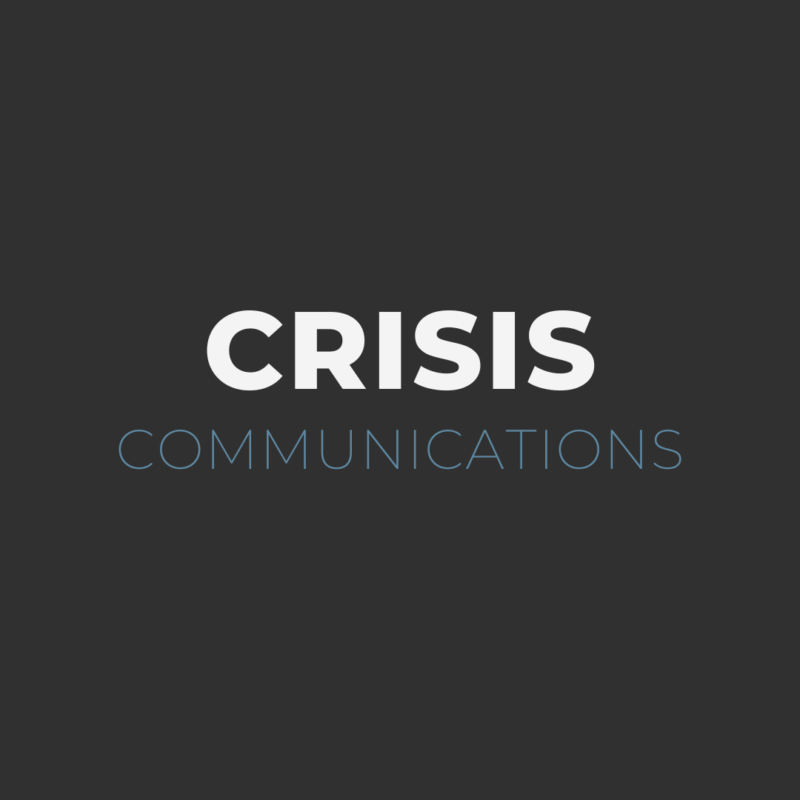Navigating a crisis mandates grace and emotional intelligence
An opening acknowledgment: If you’re reading this blog post as it’s posted, we are in the midst of navigating a pandemic. Operations are changing, and methods to alleviate the risk of further spreading COVID-19 are evolving. We acknowledge that the recommendations included below may be challenging or even impossible to institute in current circumstances. But it is our hope that you can use them now, at least partially, and can apply them in the future should you ever need to use them again.
Self-preservation is our natural instinct. We’re all looking out for No. 1, which can lead us to act with selfish motivations. While we may not be willing to forsake all of our creature comforts for the well-being of others, we can make sacrifices for the common good. During a crisis, I believe it is our duty as members of a local business and social community to think of others and the impact of our decisions.
PR during a crisis is being cognizant of broader implications and taking action to limit burdens placed on your most valuable assets – your people. In the last blog, we spoke about changing your action to meet the needs of the time for your customers. But crises go beyond that – you need to think beyond your normal scope.
- Extend grace when you can.
As we work to navigate COVID-19, many working parents are grappling with getting to work and finding safe childcare. Or, parents are trying to balance working at home with homeschooling. Those are two grueling options weighing heavy on the minds of many employees. Families are worried about loved ones in assisted living facilities where visitors are no longer allowed. Partners are devastated that they can no longer be in the hospital room for the birth of their child. People are being furloughed, if not let go entirely, and others are watching years of retirement savings being wiped out. There are widespread personal implications to natural crises, and businesses must remember that employees are people first.
Extend grace when you’re in the position to. What that looks like for you and your business will be different. Maybe you can adjust hours for remote workers, or extend deadlines on projects that feel obsolete in the short term. Provide lunch, supply coffee, do what you can to support your people.
- Invest in the community.
Over the last week, I have seen companies and businesses step up to make things happen for organizations in crisis. It’s about perspective – everyone is hurting, but who’s hurting more? We all have something to contribute – for me, it’s ideas and language. I can’t deliver meals or brew your coffee, but I can help companies come up with ways to articulate difficult feelings. Your business might carry significant political leverage that you can use to lobby members of Congress. You might be able to cater a meal for your staff using a local restaurant. Every business, every person, can contribute something to the mutual good. Look for people hurting and step in to help.
- You don’t have to (and arguably shouldn’t) talk about it.
Navigating a crisis mandates emotional intelligence. I have seen a number of big-box retailers handling things the right way – communicating with customers about new ways to safely engage with their business should they need essential supplies. While they may be making significant investments in employee wages, even though stores are closing, they’re not gloating about it. They’re letting the public know that they are supporting their staff, and then they move on to a new message. I’ve also seen stories of landlords canceling rent payments, or corporations swooping in to provide free services for small businesses in their communities. The beauty of these stories is that they are told by the people benefiting from the service – not from the business offering the support. It doesn’t come across as gloating this way. It reads as business leaders focusing on people before profit.
You might ask – how is all of this PR? I want to avoid being cliché, but Maya Angelou’s quote comes to mind:
At the end of the day people won’t remember what you said or did, they will remember how you made them feel.
If you make people feel cared for, important, protected and safe during a crisis, they will remember that. This builds trust and brand loyalty like no other. So, act with grace and kindness during a crisis.


